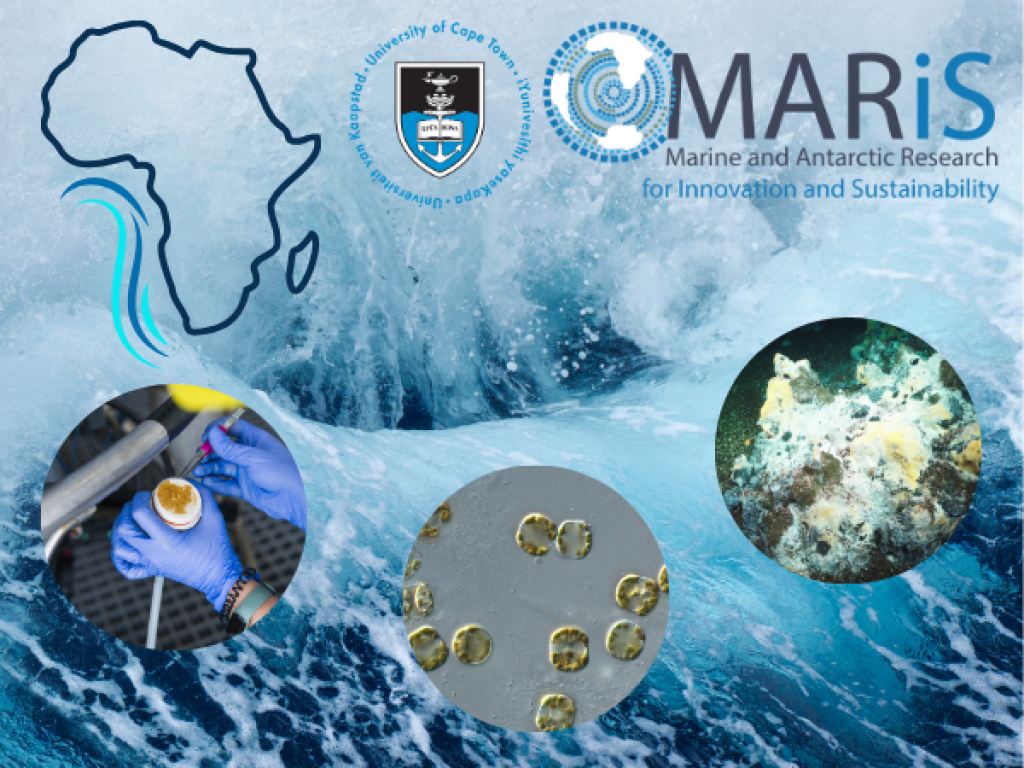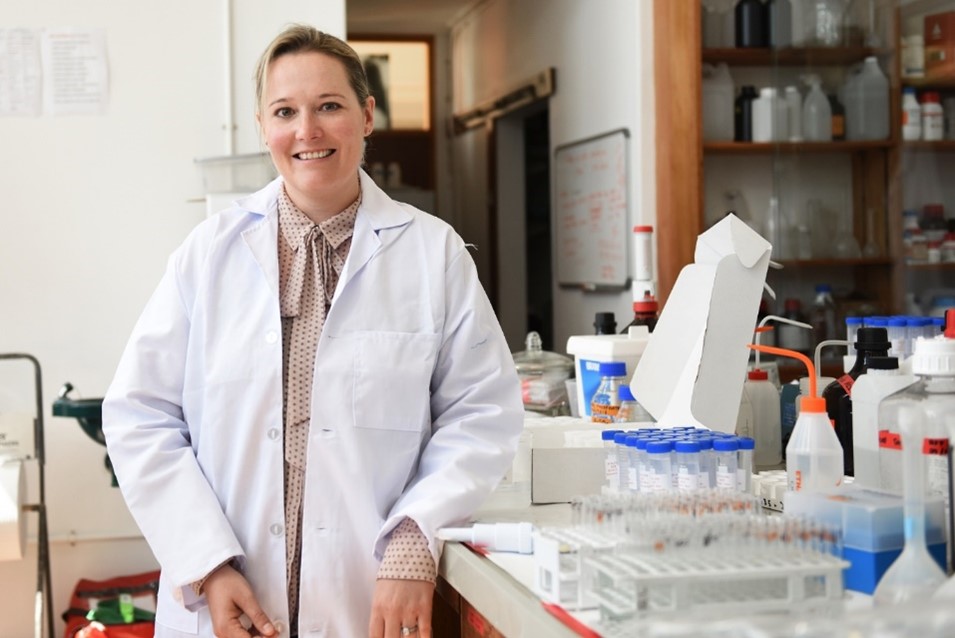UCT-MARiS spearheads collaborative effort to investigate oxygen dynamics along the West African Margin

The Marine and Antarctic Research Centre for Innovation and Sustainability (MARiS) at the University of Cape Town (UCT) is excited in making significant strides in global oceanographic research with the appointment of Associate Professor Sarah Fawcett from the Department of Oceanography as the lead researcher for one of the prestigious Ocean Biogeochemistry Virtual Institute (OBVI) projects.
This groundbreaking initiative, facilitated through Schmidt Sciences, marks a pivotal moment for UCT-MARiS, positioning the institution at the forefront of international efforts to address critical gaps in ocean data and modeling. The project, titled "Oxygen and Biogeochemical Dynamics along the West African Margin (WAM): Processes and Consequences," highlights South Africa's commitment to advancing scientific understanding of ocean carbon cycling and ecosystem resilience in the Atlantic Ocean.
The OBVI initiative aims to enhance the scope of research in ocean biogeochemistry while expanding global capacity to comprehend and manage ocean resources. With UCT-MARiS leading one of the five selected projects, South Africa will play a central role in shaping future strategies for sustainable ocean management.

Associate Professor Sarah Fawcett expressed her enthusiasm, stating, "This opportunity not only highlights the scope of expertise within UCT-MARiS but also highlights South Africa's growing influence in global marine research. Our project will delve into the intricate dynamics of oxygen and biogeochemical processes along the West African Margin, shedding light on vital ecosystem functions and their implications for climate resilience."
The project will investigate three core research questions:
-
What are the controls on hypoxia and suboxia along the African margin?
-
How do these processes affect African margin ecosystems?
-
What are the basin- and global-scale consequences of West African margin processes?
UCT-MARiS Directorship emphasised the broader implications of the project, stating, "Our involvement in the OBVI initiative signifies a strategic commitment to advancing scientific knowledge and fostering sustainable practices in ocean conservation. By unravelling the complexities of biogeochemical processes in the Atlantic Ocean, we aim to inform evidence-based policies and promote stewardship of our marine resources for generations to come."
The main areas of interest within this project includes the West African Margin (eastern Atlantic Ocean) and the equatorial Atlantic upwelling, with specific cruises planned aboard the RV Falkor in 2026 and 2027. Additionally, the project will involve the development and simulation of high-resolution global and regional ocean biogeochemical models to facilitate comprehensive analysis. Moreover, the project offers numerous opportunities for collaboration, including scientific synergies with the Ocean Biogeochemistry Virtual Institute (OBVI) InMOS project and outreach initiatives aimed at capacity building and networking.
As UCT-MARiS embarks on this ambitious venture, the university reaffirms its dedication to excellence in research and its pivotal role in addressing pressing global challenges. With Associate Professor Sarah Fawcett at the helm, the institution is prepared to make significant contributions to our understanding of ocean dynamics and pave the way for a more resilient and sustainable future.
The Leadership team consists of Sarah Fawcett, University of Cape Town [lead PI]; Sarah Nicholson, Council for Scientific and Industrial Research; Laure Resplandy, Princeton University; Daniel Sigman, Princeton University. The rest of this incredible team includes the following co-investigators: Curtis Deutsch, Princeton University; Kelly Ortega-Cisneros, University of Cape Town; Moagabo Ragoasha, University of Cape Town; Alakendra Roychoudhury, Stellenbosch University; Lynne Shannon, University of Cape Town; Anja van der Plas, Namibian Ministry of Fisheries and Marine Resources; Bess Ward, Princeton University.
The significance of this endeavour cannot be overstated, with the project securing over $3 million in funding for UCT and contributing $6.5 million to South Africa's research infrastructure. This substantial investment reflects the international recognition of UCT-MARiS as a leading institution in marine science and underscores the potential for transformative discoveries in ocean biogeochemistry.